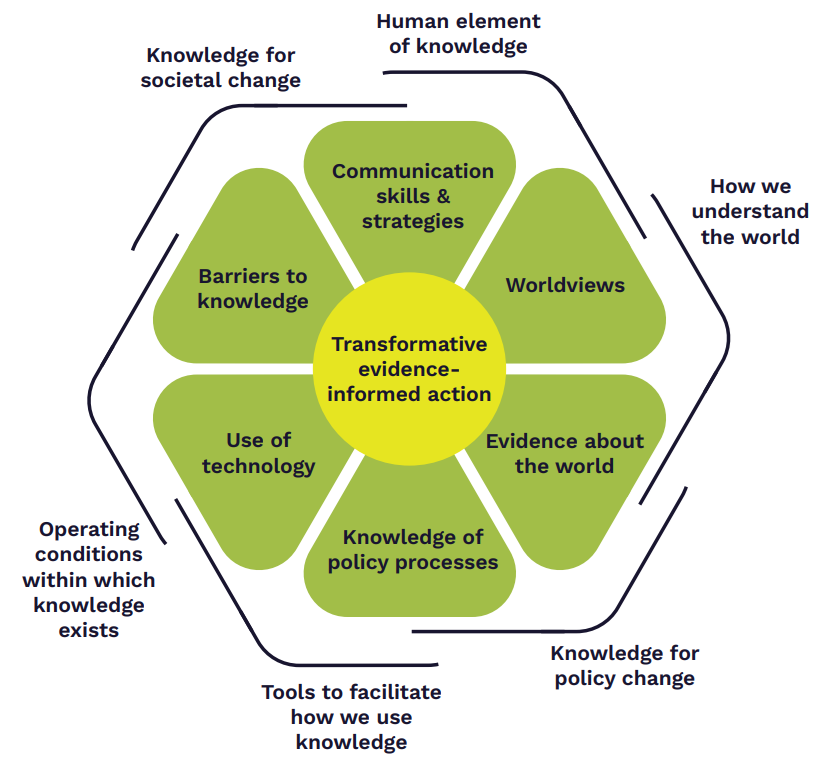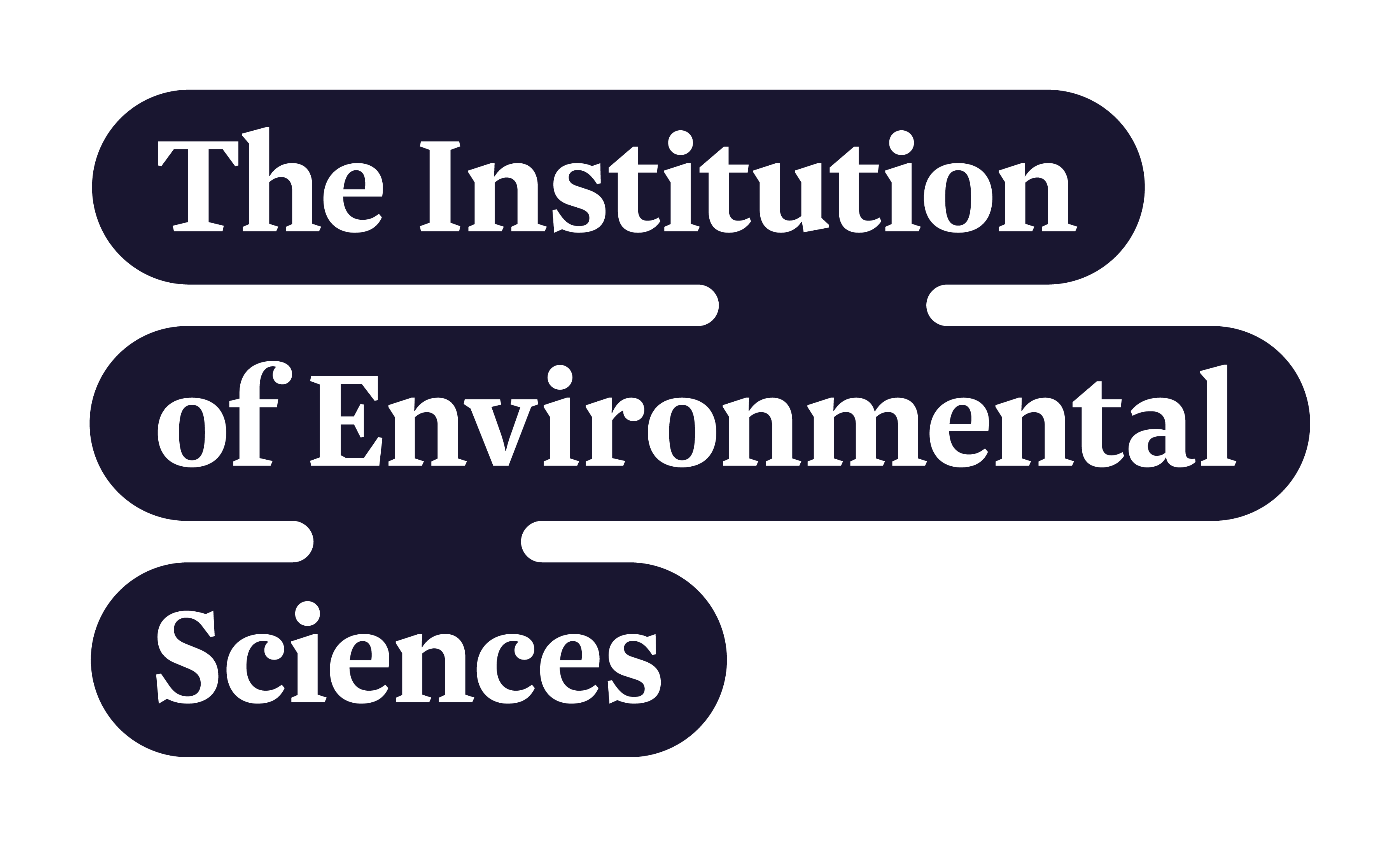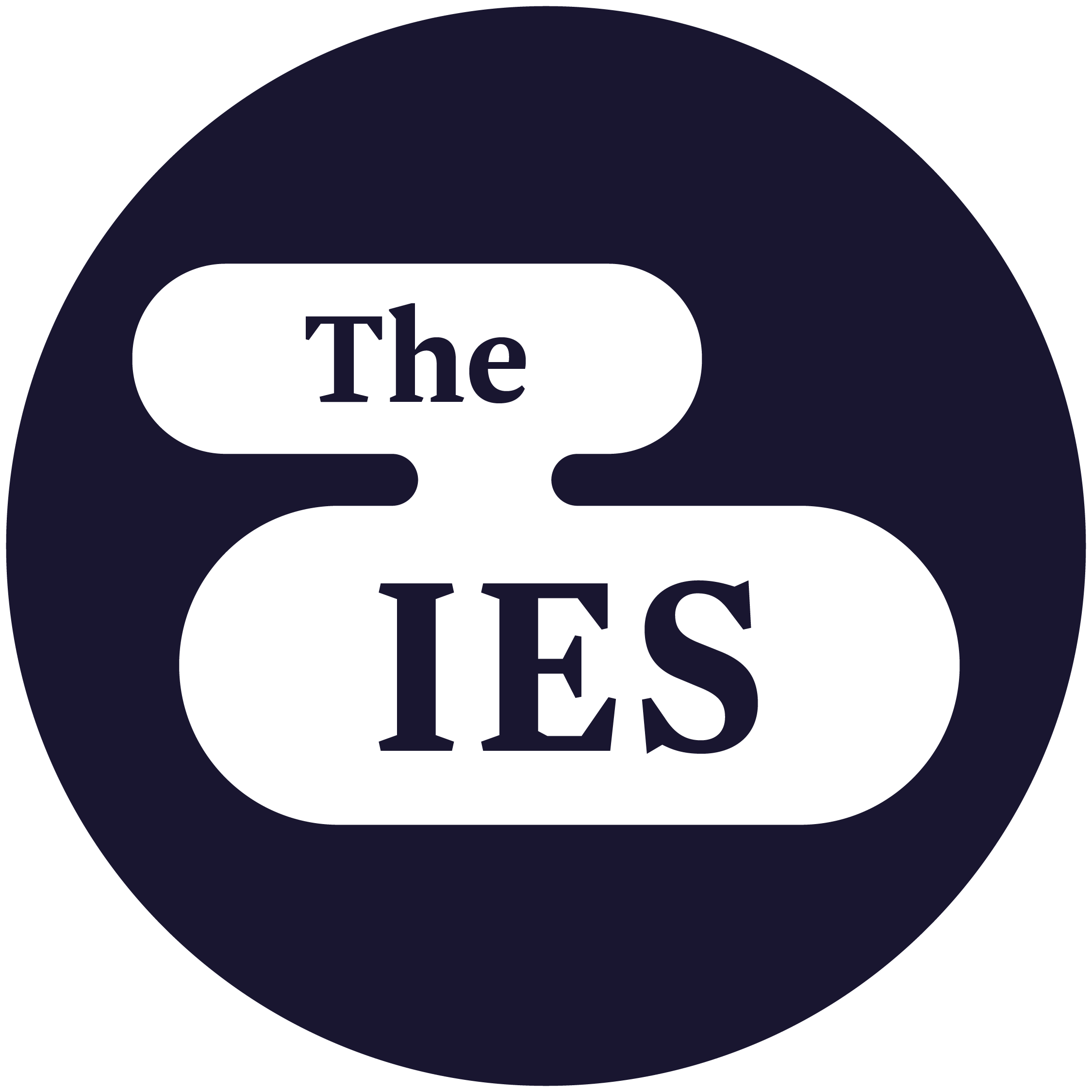IES Report: Transformative evidence-informed action
Over the past year the IES has been conducting a thematic project on 'Knowledge for policy'. That project has now concluded with a final report: 'Knowledge in a world of transformative change'.
Following the release of our vision for the future of environmental science in November 2023, the IES has undertaken a thematic project around the role of knowledge in supporting evidence-informed policy, aimed at facilitating progress towards the vision with regards to several key challenges for knowledge and its role in policy making.
Background
Over recent years, several critical opportunities and challenges have arisen for knowledge and the interface between science, the public, and policy. Increased opportunities for evidence sharing and knowledge exchange, both within academia and beyond research communities, have fostered a culture of evidence-informed decision-making.
There are also challenges. In the aftermath of the COVID-19 pandemic, the use of science by governments became highly normalised, yet views of expertise became increasingly polarised. This is particularly stark for environmental policy, where decisions face a high degree of politicisation.
In 2023, the IES undertook a year-long horizon scanning and foresight project, which culminated in the publication of ‘Transforming the Planet: Our vision for the future of environmental science’.
The IES has continued to work in support of that vision and the positive future it could help to achieve. Concerning knowledge, several key challenges emerged from our vision for the future:
- The need for a breadth of perspectives across the environment sector
- Challenges for consolidating evidence and data to support decision making
- The translation of increasing recognition of the need for interdisciplinarity and systems thinking into practice, particularly in the context of policy
- The increasingly ubiquitous role of technology across the environment
- Challenges for evidence-informed policy in the face of increased politicisation and uncertainty
- Pressing skills needs across the environmental sciences
Over the last 16 months, the 'Knowledge for policy' thematic project has sought to uncover answers to these challenges.
What are the key findings from the report?
The report identifies six components of the knowledge landscape which were particularly important for understanding how systems can be influenced to promote transformative change. When taken together (see Figure 1), the six components present a more complete
understanding of the interactions between knowledge, evidence-informed policy, and transformative change, enabling a more systemic approach to transformative evidence-informed action.
Figure 1. Elements of knowledge for transformative evidence-informed action
 |
Figure 1 sets out the six components of the knowledge landscape identified throughout the thematic project: worldviews, evidence, process, technology, barriers, and communication. It clarifies how these components can be combined into pairs that produce frames of understanding to leverage knowledge towards the aim of achieving transformative evidence-informed action on the environment. This is outlined in more detail in the full report.
Outputs from the 'Knowledge for policy' project
- Report: 'Knowledge in a world of transformative change'
- Article: ‘Two perspectives on ways of knowing and being’
- Panel discussion: ‘Future generations and young voices for the environment’
- Report: ‘An evidence-informed environment’
- Case studies: ‘Speaking up for science: Case studies for environmental policy’
- Panel discussion: ‘Technology and the environment’
- Article: ‘Access to knowledge in a world of uncertainty and politicisation’
- Panel discussion: ‘Green skills: Priorities, challenges and delivery’
Through our work in policy, the IES hopes to unite science and people to resolve environmental challenges. What we know and what we do with that knowledge are both essential ingredients to uniting people to find those solutions.
To get more involved in our work to promote evidence-informed approaches to environmental policy, you can join the IES as a member, become an Affiliate, or get in touch with Joseph Lewis, IES Policy Lead (joseph@the-ies.org).
Header and card image credit: © karegg | Adobe Stock


